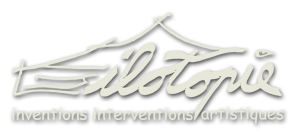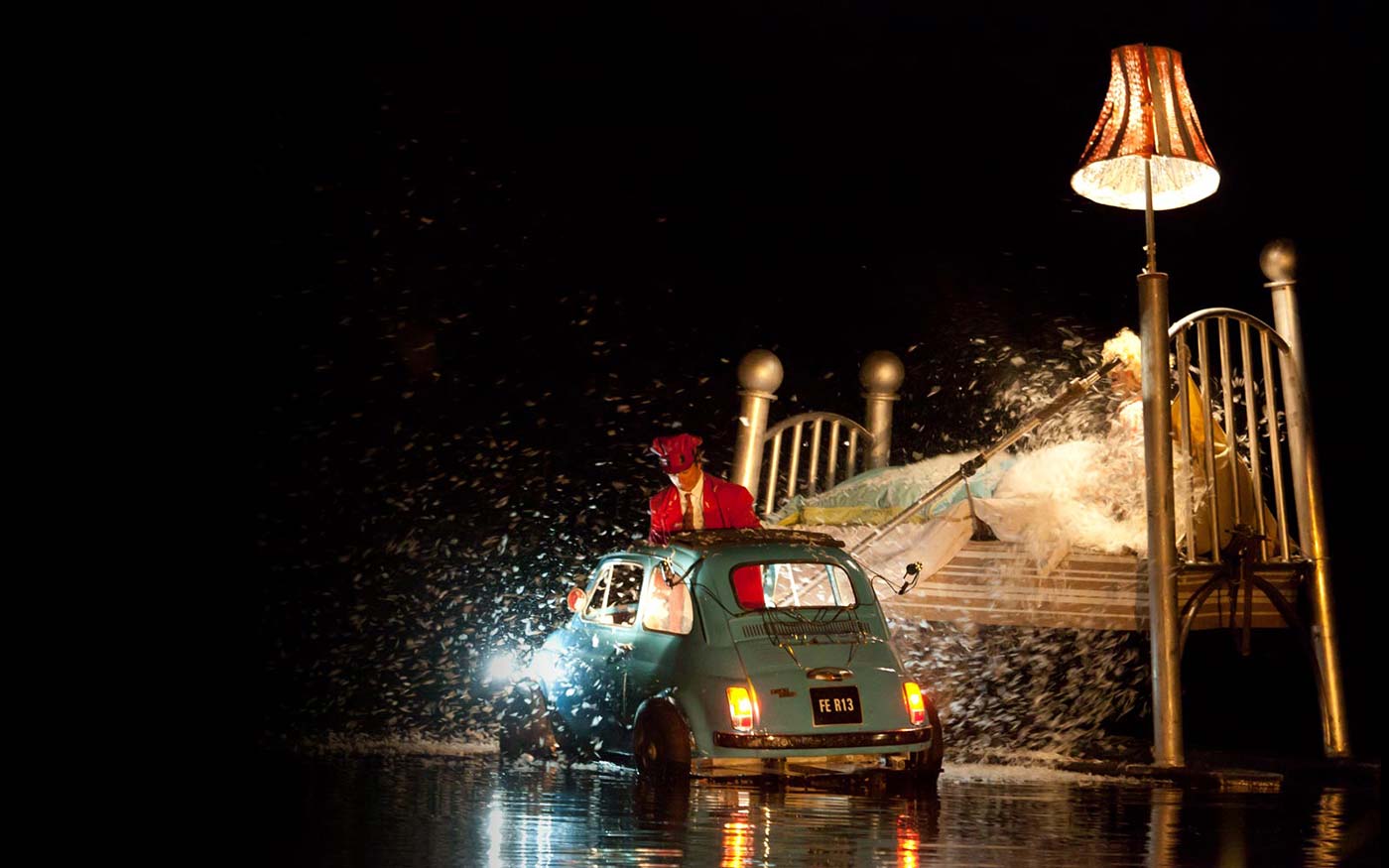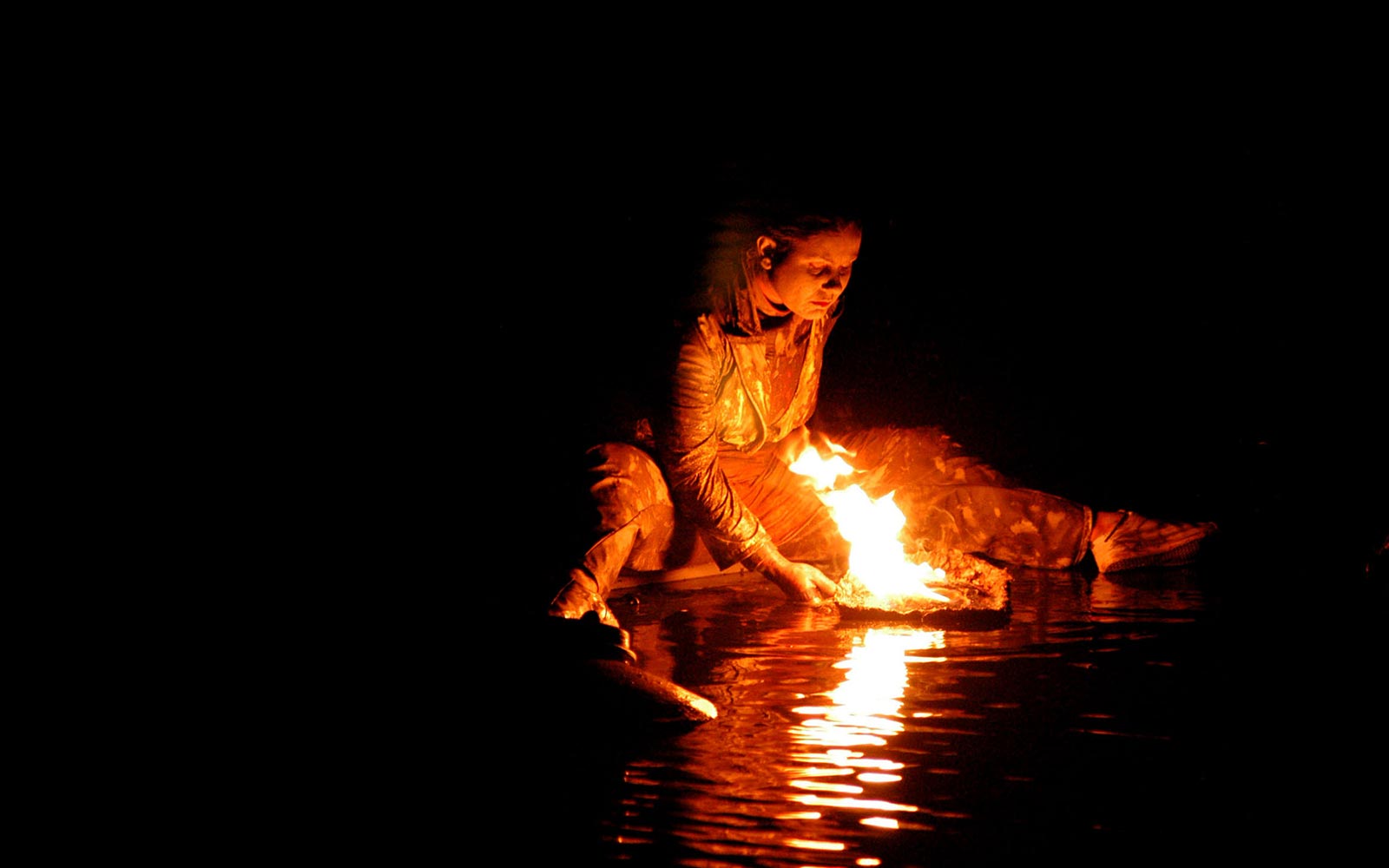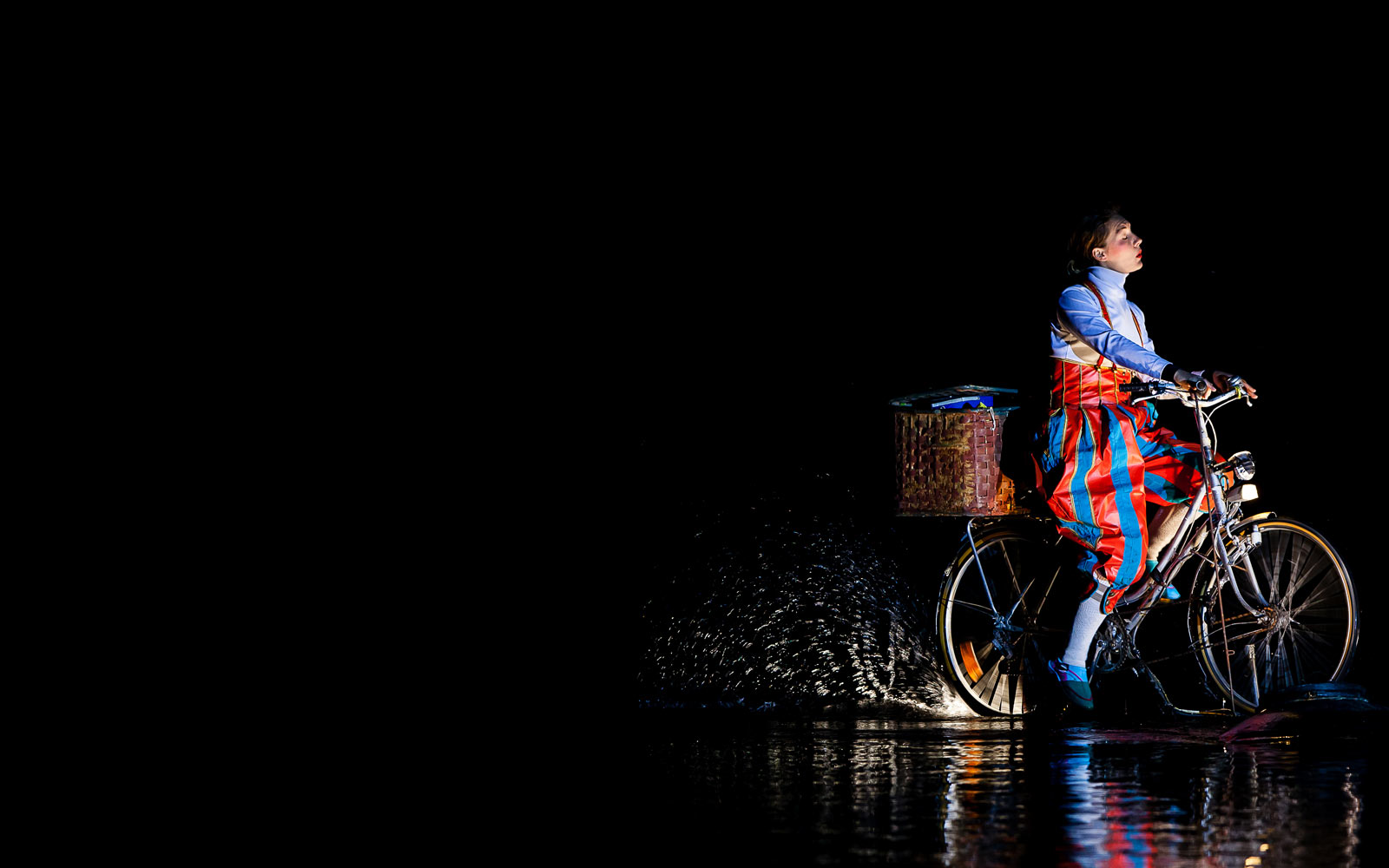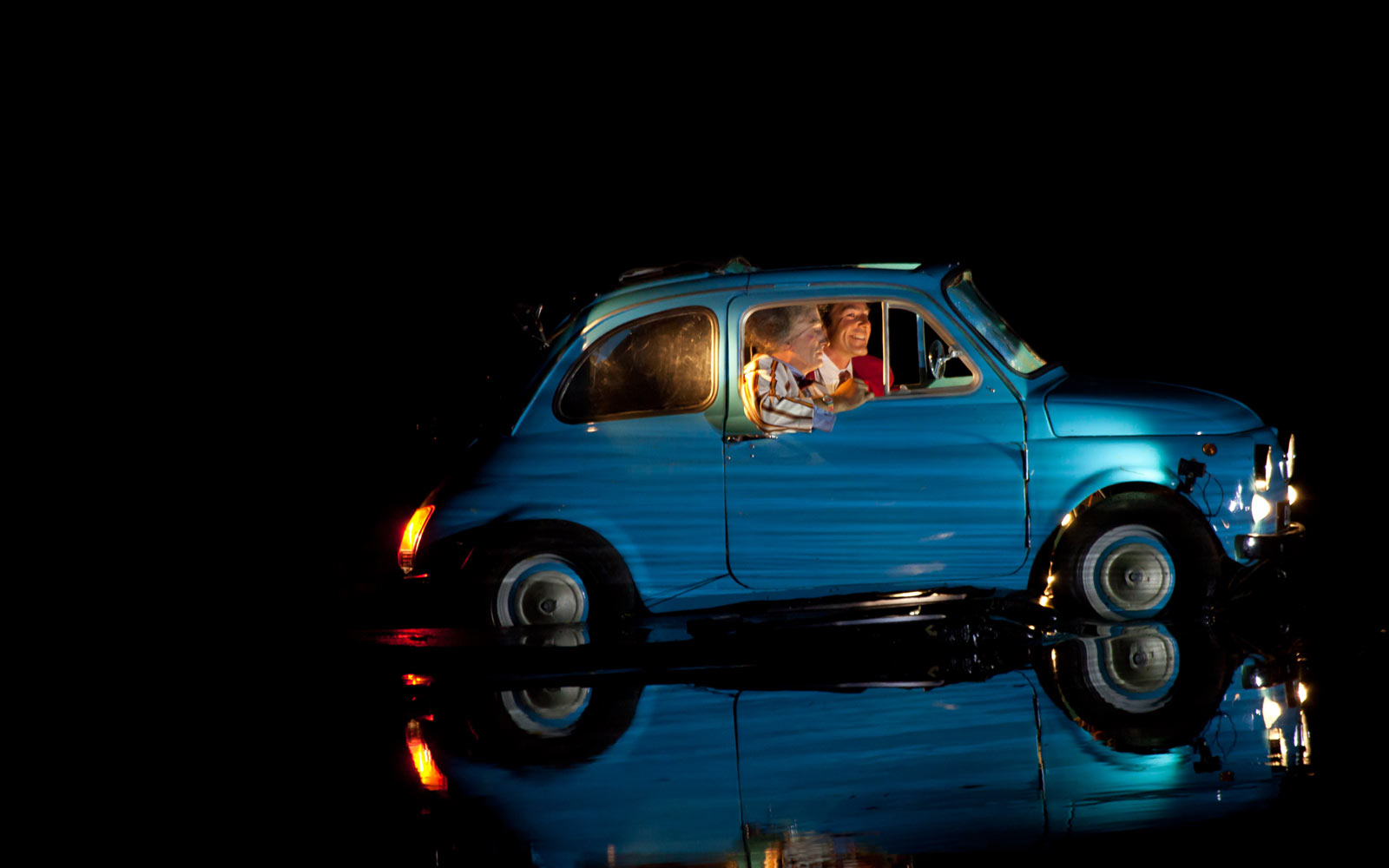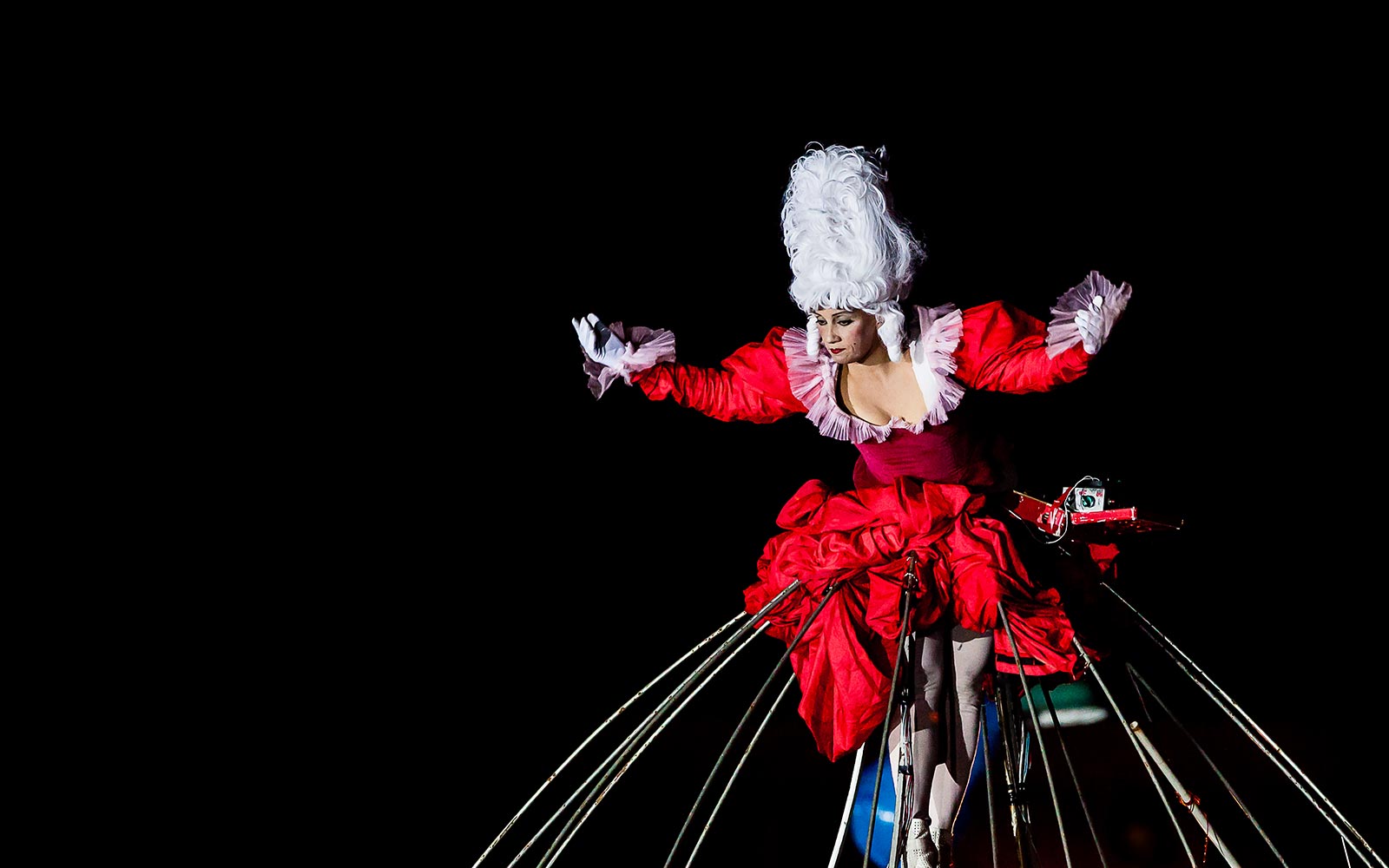News
Welcome to ilotopie
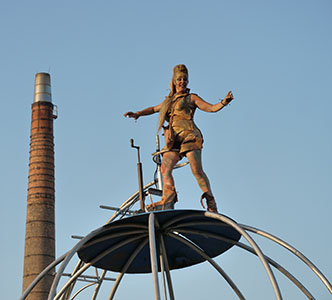
2024, together in the house on fire, and yet, entertaining and not giving up, playing but not forgetting anything, loving and expecting nothing in return, living like hounds, SCREAM !
2024 the planet, with water lacking here and rising, there water is our stage !
As a shared landscape which our team turns into a gigantic dream, from the water, we shall travel to the edge of the earth to greet you !
Browse among all our offers on our website, then come back to find us on line, as images and living realities…but do not miss our ongoing creation: « essential straw islands »
Bruno Schnebelin, artistic director
ilotopie, shows to take away
Welcome to the site
As the tide turns against the use of coal, let’s shift our thoughts to water as a poetic stage. However, as the tide is turning so slowly Ilotopie warns that there may come a time when rivers, ponds and lakes will run dry. So the sea will become our infinite stage as the shore line gradually approaches our audience.
So ‘All Aboard’, ‘Drift Away’ with us, come share our ‘Reflections’ in a series of shows current-ly taking place or in the (water) course of being created. Let’s enjoy this time together.
Bruno Schnebelin, Artistic Director
When we say: « it was a blank year », is it the colour of the gown, the hospital, and the lab leaving their mark on these past months? And now, what mutates? The multinationals, our humanity, or the virus? The snap trend for borders and enclosures will not hem in our imaginations and working in theatre, we at ilotopie want to respond alongside the whole of our society.
Of course, each show revolves around our emotions and reflections, current and future; backfiring like a thought both preventative and curative, they make-up the mental care that unites us all.
For 2021, we are interested in reliance, and it is the invention of the edge of the world which inspires us: with installations and shows ready to carry you away!
MAKE-BELIEVE AS A MODEL
When we work in theatre, not in a theatre, but with theatre as a living tool which transports meaning -a public transport one might add- make-believe enters the everyday. At the company ilotopie which I helm, we create ‘popular’ theatre, that is to say that we only perform in the public spaces or parks of a town for those who happen to be there, I mean to say a public audience, a demographic with no access to high-brow culture, with its thresholds which few are able to cross, almost a lucky audience. It has been our long-term project to form epemeral congregations in these public spaces, offering a show engrained in the town.
These shows bear no economic relation to their audiences, a view is free, you do not pay to watch, like a landscape, or an accident. It is up to the company to find the funding, often public, sometimes private, yet always doing our utmost to ensure that the origin of these funds does not taint the content of our creations. Another balancing act is the development of polysemies unbound by interception and appropriation, all through performance without words; to tease out an imagination from non-narrative forms, to succeed in painting a picture for everyone, an image which does become a story, though no longer our own. In this way, the account comes from the context, in story-telling which descends on an urbania often lacking in stories. The artists make the town speak, the very depths of the town, like a person; the town is a person.
It is here that make-believe comes in, as we whip up figures, myths old or new, totems or artefacts, avatars or ghosts, all actors and agents rife with symbols, all the while avoiding caricatures. The actor produces their act, just as everyone produces their life. But here it is a fully conscious process, in plain sight, to be received, perceived and grasped as a fabrication; partly because fabrications pose questions, just as fake-news uses the satire which it reveals to provoke. To fabricate is also to invent models which do not sit with reality, utopian lives and behaviours, whether idols or train wrecks.
Over some years, perhaps with the decline of public spaces and organised mass movement, with its intangible predictions, our company has decided to go and make theatre on water, the water behind the towns, seas, rivers and lakes. The surface of the water is our stage, with its accompanying technical challenges to overcome. Audiences are invited to the banks or the quays, sometimes beaches. In these public spaces which remain unrestrained, the water of a town, we install ephemeral sets and perform as a group of fifteen, on an aquatic stage the size of a football pitch, shows of a behavioural theatre, in which humans appear miraculously adapted to the rising water level. Here, everything glides, appears and disappears, composing image after image, which are impossible take in all at once, perhaps a story with no end, with no heroes.
Bruno Schnebelin
